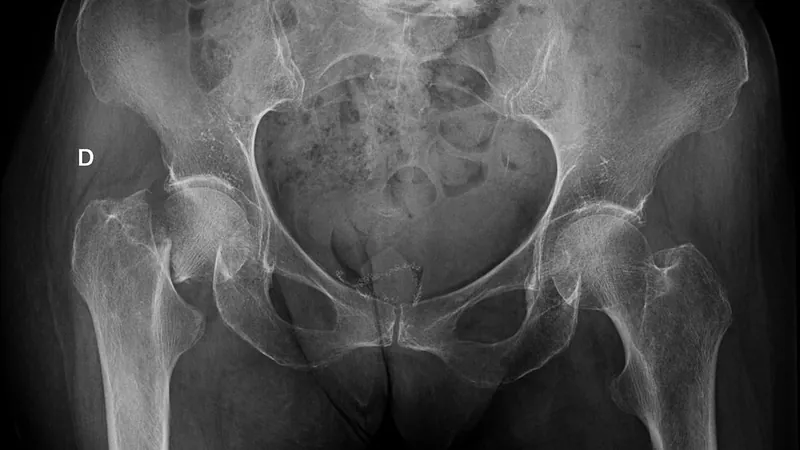
Breakthrough Study: Chinese Medicinal Tea Could Transform Treatment for Sjögren's Patients!
2024-11-25
Author: Yan
Introduction
In a groundbreaking study, researchers have unveiled evidence that drinking a traditional Chinese medicinal tea known as Chun-Yu-Ching-Hua-Yin could significantly alleviate the symptoms of Sjögren's disease. This autoimmune condition, which causes inflammation in the glands responsible for producing tears and saliva, leads to distressing symptoms such as dry eyes and dry mouth. However, this recent research suggests a promising complementary approach to treatment.
Study Findings
Patients enrolled in the study displayed remarkable improvements in several key areas: tear production, ocular dryness, and even overall sleep quality. Over an eight-week period of daily tea consumption, Sjögren's patients noted a striking reduction in their reliance on artificial tears, decreasing from an average of nearly five times a day to just once by the end of the study.
The published findings in the International Journal of Rheumatic Diseases highlight how the Chun-Yu-Ching-Hua-Yin tea can enhance tear gland functionality. Utilizing Schirmer's test—a standard measure of tear production—the study revealed a significant uptick in tear secretion levels among participants after just four weeks of drinking the tea daily.
Ocular Surface Disease Index
Before starting the tea regimen, Sjögren's patients reported a mean ocular surface disease index (OSDI) score of 55.39, where a higher score indicates more severe symptoms. Astonishingly, after eight weeks, this score lowered to a mean of 45.34, alongside reduced eye sensitivity and effects such as grittiness and blurred vision. Those with dry eye syndrome (DES) experienced similar benefits.
Quality of Life Improvements
Patients also reported a marked improvement in overall quality of life, citing reduced symptoms related to fatigue, dryness, and pain. The tea even seemed to foster better sleep, as participants noted they could fall asleep faster and required less sleep medication after incorporating the tea into their daily routine.
Mechanism of Action
The findings indicate that the tea's efficacy may come from its molecular interactions that address vital pathways related to inflammation, autoimmunity, and tear production. Despite a few mild side effects—such as diarrhea and acid reflux in some patients—the overall safety profile was acceptable.
Future Research Directions
Looking forward, researchers stressed the importance of further studies, particularly to explore the long-term effects and mechanisms behind the tea's benefits. Future investigations could see the development of powdered or capsule formulations, enabling the establishment of placebo-controlled trials that would validate these preliminary findings.
Conclusion
With more than 4 million Americans affected by Sjögren's disease and typically relying on symptomatic treatments that often come with adverse side effects, this study opens a thrilling new chapter in understanding and managing this chronic condition. Could this ancient Chinese remedy become the new key in conquering Sjögren's syndrome? Stay tuned for further developments!


 Brasil (PT)
Brasil (PT)
 Canada (EN)
Canada (EN)
 Chile (ES)
Chile (ES)
 España (ES)
España (ES)
 France (FR)
France (FR)
 Hong Kong (EN)
Hong Kong (EN)
 Italia (IT)
Italia (IT)
 日本 (JA)
日本 (JA)
 Magyarország (HU)
Magyarország (HU)
 Norge (NO)
Norge (NO)
 Polska (PL)
Polska (PL)
 Schweiz (DE)
Schweiz (DE)
 Singapore (EN)
Singapore (EN)
 Sverige (SV)
Sverige (SV)
 Suomi (FI)
Suomi (FI)
 Türkiye (TR)
Türkiye (TR)